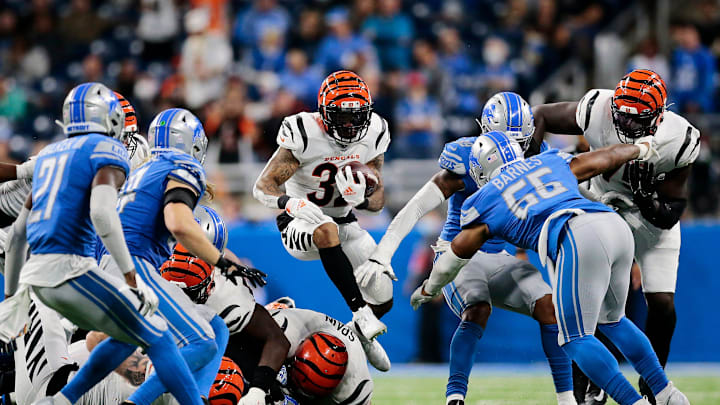The Detroit Lions are the 2021 version of the Cincinnati Bengals. The similarities are uncanny.
Waiting for both of these franchises to be good at the same time was like waiting for the sun to rise in some parts of Norway in the winter. You had to wait a while. Longer than you would probably like.
But now the "Polar Night" has lifted from both franchises with a long and dark history of not winning.
Looking at the Detroit Lions and how they got to this point, we could not help but notice some commonalities between them and the 2021 Bengals. These resemblances will impact both teams and cities for some time to come.
Here are just five ways the versions of these teams resemble each other.
Losing droughts now fertile playing fields
The Cincinnati Bengals had not won a playoff game since 1991. 31-year drought for the franchise. They broke that streak two years ago with a victory over the Raiders.
Coincidentally, the last time the Detroit Lions won a playoff game was in 1991. They broke that streak when they defeated the Los Angeles Rams.
The NFL community wrote off these two Midwest teams. Both franchises have been treated as laughing stocks and doormats for decades. However, Nick Saban leaving Alabama is not the only tide that has recently changed.
The Cincinnati Bengals were once considered one of the worst franchises in North American sports. Those days seem beyond us as the team is more popular than ever.
The torch for the worst NFL franchise was subtly passed to the Lions, which had as long of a playoff-win drought as the Bengals.
We can expect the playoff droughts to be dampened in Cincinnati and Detroit with the talent that they possess on their rosters.
For these two once-hopeless franchises, the past is as dark as it comes. Fans have removed the paper bags from over their faces and replaced them with what many would consider ill-advised tattoos.
How sure are you that your team is going to win it all at this year's Super Bowl? Well, a diehard Detroit @Lions fan took his certainty with him to the tattoo shop when he got the team's logo inked onto him. https://t.co/jyVFWbKwN9 pic.twitter.com/LstSCmTcGm
— ABC7 News (@abc7newsbayarea) January 25, 2024
Now, the franchises' futures, like those new Lions and Bengals tats, are bright.
And both organizations appear to have made the right decision on who the coach should be to shepherd in a new era.
